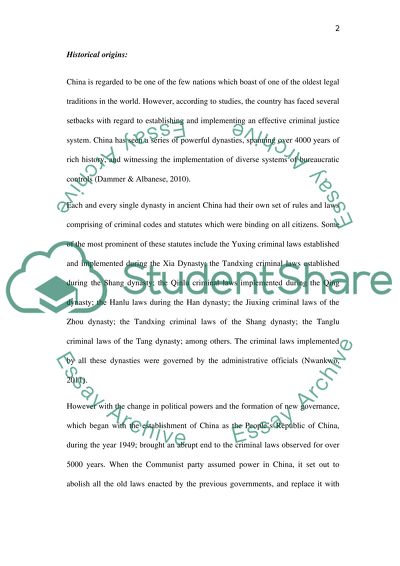Cite this document
(“Justice System In China Research Paper Example | Topics and Well Written Essays - 2000 words”, n.d.)
Retrieved from https://studentshare.org/law/1446138-justice-system-in-china
Retrieved from https://studentshare.org/law/1446138-justice-system-in-china
(Justice System In China Research Paper Example | Topics and Well Written Essays - 2000 Words)
https://studentshare.org/law/1446138-justice-system-in-china.
https://studentshare.org/law/1446138-justice-system-in-china.
“Justice System In China Research Paper Example | Topics and Well Written Essays - 2000 Words”, n.d. https://studentshare.org/law/1446138-justice-system-in-china.


